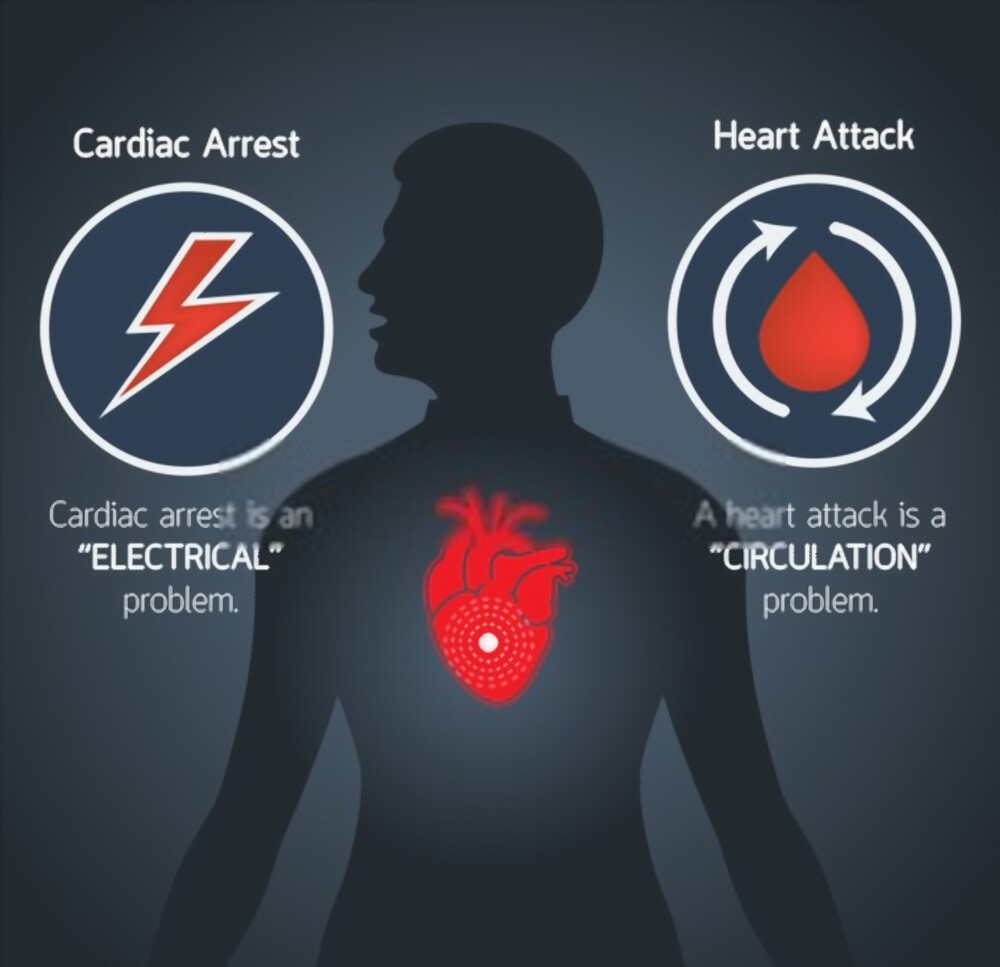What is cardiac arrest?
The sudden cessation of cardiac activity, causes a cardiac arrest. This causes the individual to become unresponsive, with no normal breathing and no signs of circulation. If corrective measures are not taken rapidly, this may be fatal. Those suffering may or may not be previously diagnosed with cardiac issues. Most of all cardiac deaths are sudden.
Causes-
- Presence of underlying structural cardiac disease- ischemic coronary disease is the leading cause.
- congestive heart failure
- left ventricular hypertrophy
- congenital coronary artery abnormalities
- cardiomyopathy
- cardiac tamponade.
Non cardiac causes include intracranial hemorrhage, pulmonary embolism, pneumothorax, toxic ingestions including drug overdose, electrolyte abnormalities, severe infection (sepsis), hypothermia, or trauma.
Clinical scenario-
Many patients who survive have amnesia. They may have preceding events but are commonly ignored. Chest pain is one of the most characteristic symptom.
An individual found to be in cardiac arrest will be unresponsive, without a pulse, and will not have normal breathing.
Cardiac arrest vs heart attack-
Cardiac arrest happens in the presence of rapid, abnormal impulses.
Heart attack occurs due to disruption of blood flow to the heart.
Events occurring during cardiac arrest-
With cardiac arrest, abnormal and rapid impulses abruptly override the normal impulses that initiate the heartbeat. Therefore there’s no way to deliver oxygen-rich blood to the rest of the body, causing cardiac arrest, which requires immediate intervention.
Treatment-
Care includes using:
- Cardiopulmonary resuscitation (CPR): Immediate CPR is one of the most important treatments to improve survival.
- Automatic defibrillator or external defibrillator: Once connected, this device delivers a brief electrical current to the chest, to restore normal impulses.
Patient education-
Most cardiac arrests occur in an out-of-hospital setting.
In hopes to potentially delay cardiac arrest, one can undergo risk stratification to identify those who may benefit. Screening of individuals with ecg and stress test along withother diagnostic tests may be preventive.
Lifestyle changes-
- Exercise on a daily basis
- incorporate a healthy diet
- effective treatment of hypercholesterolemia, hypertension and diabetes
- smoking and alcohol cessation
Also read- https://vcurehealthcare.com/understanding-panic-attacks-and-disorder/





